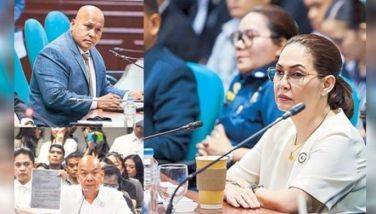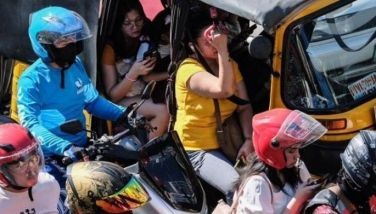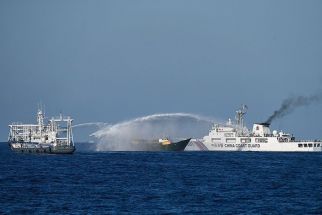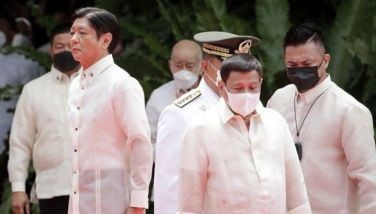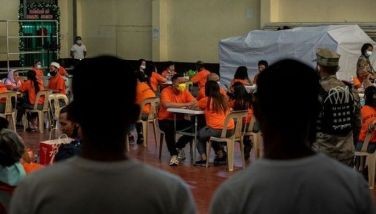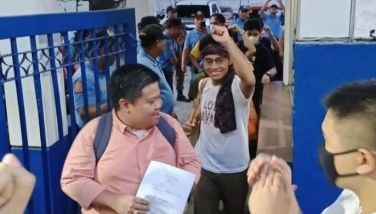UNHRC urged: Understand Phl situation
MANILA, Philippines - Sen. Alan Peter Cayetano on Monday appealed to members of the United Nations Human Rights Center (UNHRC) to recognize the link of illegal drugs, especially methamphetamine hydrochloride or shabu, to violent crimes and poverty in order to understand the Philippine situation.
Cayetano explained to the UNHRC during its Universal Periodic Review in Geneva, Switzerland the extent of drug-related crimes in the country by showing video clips and news reports of gruesome cases in highly urbanized areas, where the perpetrators were mostly high on illegal drugs.
“There was impunity during the previous administration, but it was from the criminals and from the drug lords,” the senator said in his presentation.
Cayetano stressed that in many cases of heinous crimes in the country, the suspects are usually confirmed users of shabu.
He further cited a technical brief by the World Health Organization (WHO), which mentioned violence as among the physical consequences of the use of amphetamine-type stimulants (ATS) like methamphetamine.
“The WHO pointed out that the dependence and chronic usage of ATS is associated with psychosis and causes cognitive impairment, aggression and violence and social and family disruption,” he said.
“The Filipinos have witnessed how the use of illegal drugs, like methamphetamine, led to violence and destroyed the lives of many.”
Cayetano hit a recent statement delivered by an American doctor during a drug policy forum in the Philippines, saying there is no evidence that shabu causes violence.
The statement was reposted by UN rapporteur Agnes Callamard in her social media account.
“Illegal drugs can easily destroy a whole generation,” Cayetano said in his opening statement.
He said young people are the most vulnerable to the temptation and evils of prohibited drugs.
The Philippine Statistics Authority, according to the senator, has projected the country will have 32.7 million Filipinos aged 14 and below, or 31 percent of the population.
Cayetano reiterated that the people’s campaign against illegal drugs is pursued to preserve the lives of the Filipino people and prevent the country from turning into a narco-state.
He assured the UNHRC of the Duterte government’s dedication to effect bold reforms in ending the country’s drug problem, particularly the prevalence of shabu, within Filipino communities.
Palace downplays UN pressure
To downplay pressure from 45 out of 47 UN member nations asking the government to investigate extrajudicial killings, Public Attorney’s Office (PAO) chief Persida Rueda-Acosta, in a Palace briefing yesterday, used the UN report stating that a government should have strong policies to address the drug problem.
“The United Nations Office on Drugs and Crimes (UNODC) recommends that all nations have transparent and fair criminal justice institutions and targeted efforts to dismantle transnational organized criminal organizations,” Acosta said.
Echoing the statements of Cayetano, presidential spokesman Ernesto Abella downplayed the call to investigate the extrajudicial killings.
“Why is there no apples-to-apples comparison between the figures of past and present administrations?” Abella said, quoting the senator who questioned why the inconsistent figures on the killings in the Philippines in the previous administrations were not given so much attention.
Abella lamented how Duterte’s critics practiced double standards in defining extrajudicial killings.
“Some of the critics of the Duterte administration, including our very own Commission on Human Rights, a senator and some local media, change the definition of extrajudicial killings, therefore deceiving the public and foreign media into believing that there’s a sudden wave of state sponsored extrajudicial killings in the Philippines,” he said.
Abella also blamed a previous administrative order that defined extrajudicial killing as “the killing of the members or advocates of cause-oriented organizations like labor, environment or media activists,” resulting in a very low number of supposed extrajudicial killings in the past administration.
Political noise
For Abella, the positive results of the drug campaign were drowned by so much political noise and misinformation propagated by Duterte’s critics in the international media.
“I suppose our situation has been overtaken by the media hype and an apparently concerted effort in trying to create noise beyond what is really there,” Abella said.
For its part, the PAO, according to Acosta, has been helping poor clients in drug-related cases, which were pegged at 82,000 at the end of the previous administration. – With Christina Mendez
- Latest
- Trending














